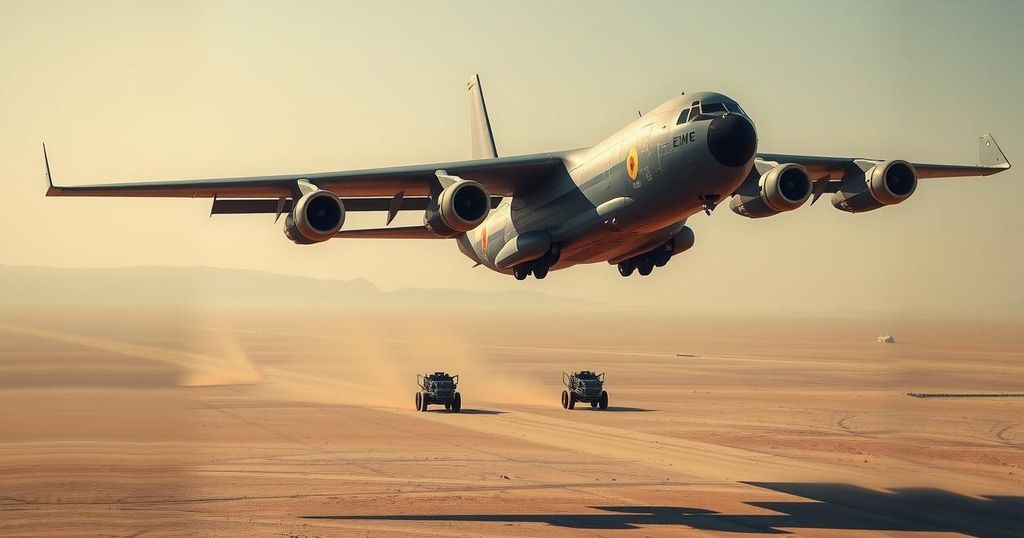Russia Supplies Military Equipment to Mali Amid Regional Instability

Russia has delivered over 100 military vehicles to Mali, believed to come from Syria post-Assad regime. The convoy included various tanks and personnel carriers, confirmed by Cyrillic markings indicating Russian origin. Wagner Group units are becoming more active in Mali since the French military withdrawal in 2022, raising concerns over human rights abuses amid ongoing conflicts with local militants.
Russia has dispatched over 100 military vehicles to Mali, including tanks, trucks, and infantry fighting vehicles. The shipment is believed to have originated from Syria, following the withdrawal of Russian troops after the Assad regime’s collapse. On January 17, a convoy, documented by local media, delivered T-72B3M tanks, BMP-3 infantry fighting vehicles, and BTR-82A armoured personnel carriers among other military equipment to Bamako, Mali’s capital.
The vehicles display Cyrillic text and Russian military markings, which indicates their Russian origin. This confirmation is supported by observations from the Ukrainian Ministry of Defence, which noted that the vehicles likely traveled by rail within Russia before shipment to Mali. Current operations in Mali involve Wagner PMC units, which have increased in activity since the French military’s departure in 2022.
Wagner Group, rebranded as Africa Corps, has been engaged in operations in Mali since late 2021, succeeding French forces in combating militant threats. However, their engagement has been marred by controversies, including accusations of civilian casualties during operations against armed groups. There are fears that the newly supplied equipment will reinforce both Wagner forces and the Malian government against local paramilitary and terrorist threats.
In November 2024, Syrian rebel coalitions intensified their efforts to unseat President Bashar al-Assad, leading to Assad’s flight to Moscow and subsequent Russian troop withdrawals from Syria. This scenario opened pathways for redistributing military assets elsewhere, particularly to Mali, where current geopolitical dynamics have shifted following the exit of French military forces after nearly a decade of operations against insurgents in the region. The situation in Mali remains critical, with ongoing conflicts involving jihadist groups, and Russian mercenaries filling the power vacuum left by departed Western forces.
The military hardware supplied by Russia to Mali signifies a significant shift in the region’s security dynamics, following the exit of French troops. Wagner Group’s increased presence offers the Malian government a controversial yet strategic tool against insurgency, although it raises concerns over human rights abuses amid rising local resistance. The implications of this transfer highlight a continuing trend of Russian military influence in Africa, especially in regions vulnerable to instability and conflict.
Original Source: indepthnews.net







